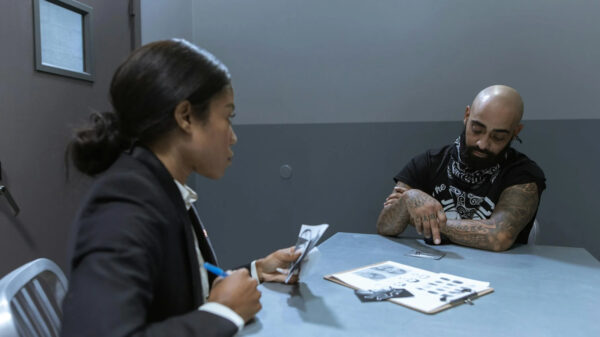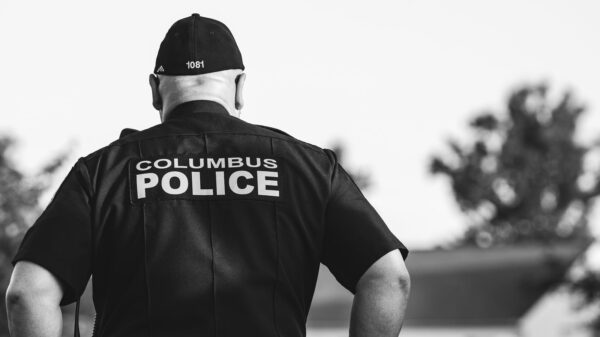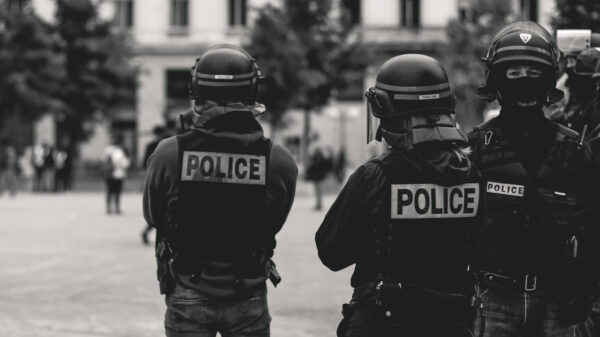As a police officer, you’ve probably been involved in a criminal trial. Even non-police officers are familiar with these kinds of proceedings, however, given how often they are dramatized in movies or TV shows. Everyone has seen how verdicts are rendered and read at the culmination of a trial. After careful consideration of the evidence in the case, the jury decides on a verdict: “Guilty” or “Not Guilty.” For many, it seems strange that “Innocent” is not an option.
As you know, it all comes down to the burden of proof.
There is a simple rule to remember: When making an argument, regardless of the topic, whoever is making the claim has the burden of proof. In a criminal case, the prosecutor is making the claim that the suspect is guilty of some type of crime. As a result, the prosecutor has to present evidence in court to support (and ultimately prove) their claim. Can you imagine if it was the other way around? If the burden was not on the person making the claim, the prosecutor could simply make an accusation against a suspect then sit back and relax as the suspect scrambled to put together some type of defense. Because the prosecutor is the one making the accusation, it is on the prosecutor to prove it by offering evidence in court. The suspect has no requirement to offer evidence of their own, and when they do choose to offer evidence, the defense will typically attempt to show why the evidence provided by the prosecutor is unreliable or insufficient.
At the end of the court case, the jury decides “Guilty” or “Not Guilty” based on the claim being made. The prosecutor claimed the suspect was guilty, so the jury decides whether the claim “the suspect is guilty” is true or not. A decision of “Innocent” would not make sense in this context, because the claim being made concerned the guilt of the defendant, not their innocence.
As Christian believers and police officers, it is important for us to keep this notion related to the burden of proof in mind. We make many claims about God, sin, and the nature of reality. When we make claims, the burden of proof falls on us. As written in 1 Peter 3:15, we should always be “ready to make a defense to everyone who asks you to give an account for the hope that is in [us].” We cannot be content to simply make a statement about faith and then sit back as the world grapples with our claim. Whatever we say about God, we must be prepared to offer evidence.
The burden of proof concept is also important for us to keep in mind when interacting with people who make claims contrary to Christianity. If our non-believing Christian friends make an affirmative claim such as “Morality comes from natural or societal sources,” “Life originated naturally from non-life,” or “The God of the Bible is evil,” the burden of proof falls on them.
Rather than having a knee-jerk reaction and making a claim of our own in response, it may be helpful to simply ask our friends to support their claim. After all, they now shoulder the burden of proof. We can reasonably hold them to the same standard we hold ourselves. By asking others to support their claims, we can better understand their perspective, even as we might expose their faulty reasoning. All this without having to make a claim of our own.
Asking why someone believes something, or asking how someone knows something is true can be very powerful. If someone is making a false claim, asking for evidence of their position will ultimately reveal the weakness of their own case. Asking why someone believes something, or asking how someone knows something is true can be very powerful. Share on X
Even Jesus chose to give “many convincing proofs” (Acts 1:3) of his resurrection. He understood the role of evidence and the burden of proof. As Christian police officers, let’s embrace this principle as we interact with others. We can shoulder the burden it when it’s appropriate, but let’s make sure to require others to do the same.
Jimmy Wallace is a detective and holds a BA in Psychology (from UCLA) and an MA in Theology - Applied Apologetics (from Colorado Christian University).












































